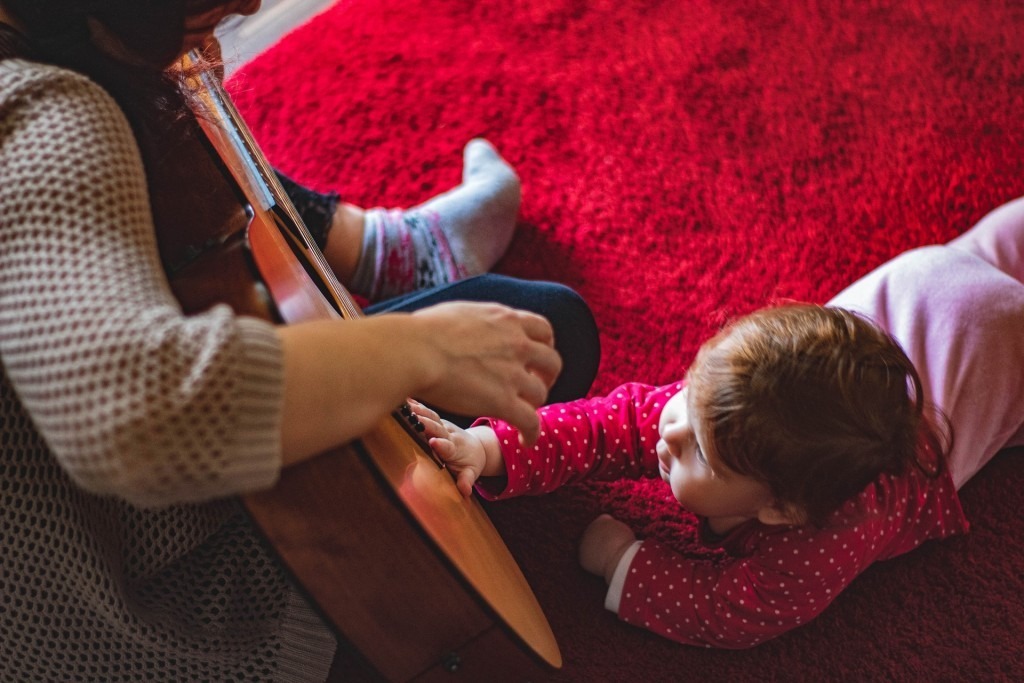MUSIC LESSONS FOR TODDLERS in Montreal and the West Island
You can start your child’s lifelong love of music as early as 9 months old! WIMA offers several programs for young children ages 9 months – 4 years. Our Music for Toddlers programs will help enrich your child’s development and environment.
Whether you take part in our “Parent and Me” classes, our “Little Musicians” or our “Pre-K Music”, students will learn about melody, rhythm, tempo, dynamics, movement and much more using fun, unique and educational musical material.
It is a discovery and an initiation to music for your little ones. Children between the ages of 4 and 6 can then move on to musical training during which they come into contact with musical instruments or more advanced singing lessons.
Programs:
Little musicians: 18 months – 3 years
Pre-K : 3 – 4 years
Our courses are offered typically on weekend mornings. Call us today to put your name down for a class at 514-612-4323.
Our lessons are only currently offered in Pointe-Claire.
Music and Toddlers
Music and songs have played very important roles in our lives and cultures for a very long time. Today, music is present in many aspects of our lives such as in the cinema, at events, on the radio, on TV and even on the street.
Music also has its place in most homes and is part of the family culture. Melodies and songs are a natural and harmonious part of our experiences and lives. It goes without saying that children are lulled into a world of music from a very early age.
From birth, parents instinctively use music to calm and soothe children, to express love and joy, and to engage and interact. Parents can build on these natural instincts by learning how music can impact a child’s development, improve social skills, and benefits children of all ages.
In recent decades, the scientific community has shown great interest in studying the beneficial effects of music on babies and children. Musical initiation can be initiated at home. Children can learn sounds and rhythms simply by listening to nursery rhymes or by receiving applause from parents while the song is playing.
Singing songs to babies and listening to music with them, in addition to producing physiological changes, develops a strong emotional bond that stimulates emotional intelligence. Similarly, at the psychological level, it awakens, stimulates and develops emotions and feelings.
Studies show that music enhances children’s attention and concentration capacity, which improves their performance at school. Music stimulates memory, analysis, synthesis and reasoning, and thus learning.
Musical stimuli in children
Children and babies should not be limited to listening only to lullabies, as they also have the ability to appreciate and remember classical music. Listening to different types of music will help them learn, recognize, and enjoy it.
In general, it is recommended to use songs with simple and repetitive lyrics that include onomatopoeia and dance songs. However, it is not advisable to restrict the child’s access to music. Babies and children have been shown to be very receptive to short, easily structured classical music.
You can sing to the baby, clap your hands or teach the baby to clap his hands. This will help him to learn the rhythms and different cadences of the music. The child should understand that music is a source of pleasure.
Advantages of children learning music
Early music lessons for toddlers education, which begins in children between 9 months and 5 years of age, aims at discovering and developing the child’s expressive, musical and psychomotor skills, which will later enable him or her to choose a musical instrument, according to the child’s preferences and aptitudes.
In most music schools, children begin at an early age with an introduction to music. They learn to make rhythms with their voices or body parts, learn when a note is high or low, and learn to write or recognize musical notes through play.
Generally speaking, children’s music teachers work with:
- Voice development
- Contact with sound sources through various materials: objects and instruments.
- The recognition and representation of sound in terms of its duration, intensity, pitch, timbre, etc.
- The development of auditory perception
- The use of movement as a means of expression and motor awareness, both visual and auditory, to get to know one’s own body, develop a sense of rhythm, and encourage social relationships.
From the age of 5 or 6, children generally move from musical initiation to musical training during which they come into contact with musical instruments.
TRY A FREE LESSON

